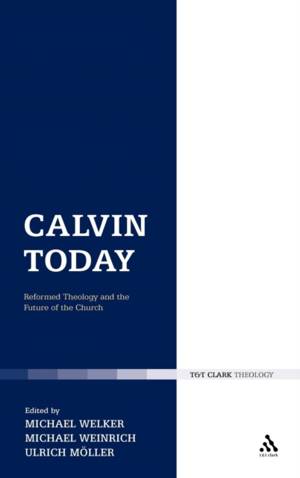
- Afhalen na 1 uur in een winkel met voorraad
- Gratis thuislevering in België vanaf € 30
- Ruim aanbod met 7 miljoen producten
- Afhalen na 1 uur in een winkel met voorraad
- Gratis thuislevering in België vanaf € 30
- Ruim aanbod met 7 miljoen producten
Zoeken
Calvin Today
Reformed Theology and the Future of the Church
€ 339,45
+ 678 punten
Omschrijving
This title presents distinguished scholars on Calvin and his surprising up to date relevance addressing three central current issues: faith - ecumenism - public responsibility. This inspiring collection of essays spells out the relevance of John Calvin's theology for today in three areas: Faith? Calvin's theology asks how God deals with the persistent presence of human sin. For Calvin, the chief end of life is to know God and devote our life to his glory. The still topical point is that we are freed from our fixation with ourselves, thereby recognising and living out our true reality in relation to God. Ecumenism? The unity of the Church in Christ is of central importance to Calvin. We must do our utmost to make it visible. In Calvin's view, if there is agreement in the understanding of God and grace, all other differences have no divisive importance. This still characterises Reformed understanding today. Public responsibility? Calvin posed the question about the church's public responsibility as no other Reformer did. Part 3 reveals the sources of the worldwide impact of Calvin's and Reformed theology on politics, the law, scholarship and the organising of life in society, including civil society.
Specificaties
Betrokkenen
- Uitgeverij:
Inhoud
- Aantal bladzijden:
- 240
- Taal:
- Engels
- Reeks:
Eigenschappen
- Productcode (EAN):
- 9780567136930
- Verschijningsdatum:
- 15/12/2011
- Uitvoering:
- Hardcover
- Formaat:
- Genaaid
- Afmetingen:
- 160 mm x 236 mm
- Gewicht:
- 898 g

Alleen bij Standaard Boekhandel
+ 678 punten op je klantenkaart van Standaard Boekhandel
Beoordelingen
We publiceren alleen reviews die voldoen aan de voorwaarden voor reviews. Bekijk onze voorwaarden voor reviews.










